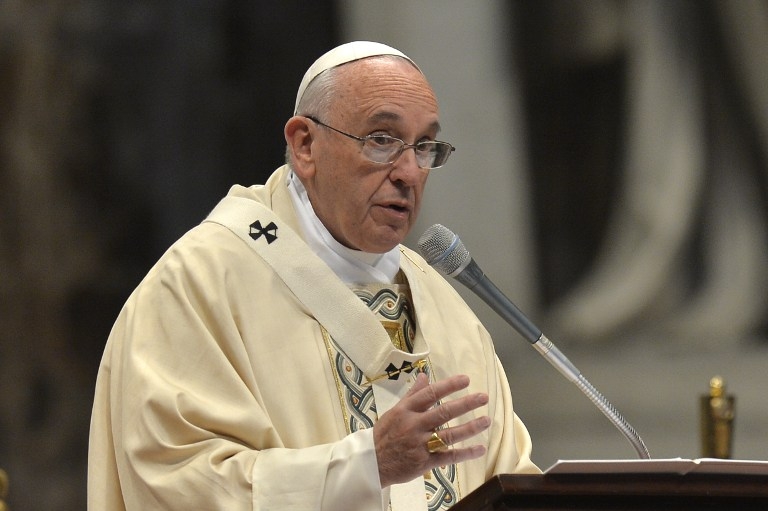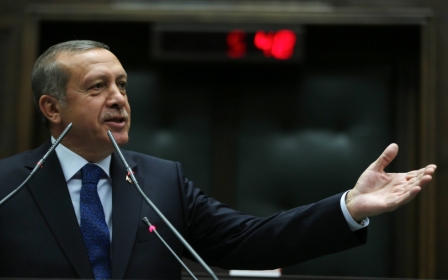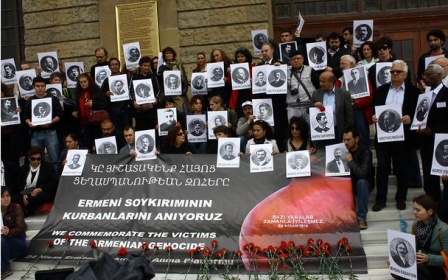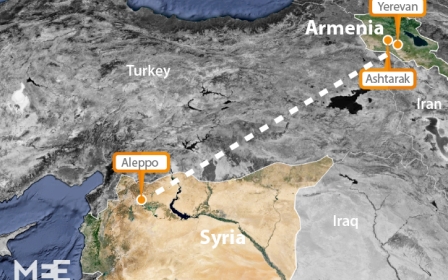Pope cites Armenian killings as ‘genocide’

Pope Francis used the word "genocide" on Sunday to describe the mass deaths of Armenians toward the end of Ottoman rule, in a move likely to severely strain diplomatic ties with Turkey.
"In the past century our human family has lived through three massive and unprecedented tragedies," Pope Francis said during a solemn mass in Saint Peter's Basilica to honour a 10th century Armenian mystic.
"The first, which is widely considered 'the first genocide of the 20th century', struck your own Armenian people," he said, citing a statement signed by John Paul II and the Armenian patriarch in 2001. Armenian President Serzh Sargsyan was among those attending the service.
The event was held close to the centenary of the killing of Armenians during Ottoman rule. The start of the killing is marked in Armenia on 24 April.
Turkey has now summoned the Vatican envoy to Ankara to request an explanation over the comments, television reports said.
The envoy had been summoned to the foreign ministry in Ankara, the NTV and CNN-Turk channels said.
There were no further details but according to Turkish media reports an official statement is to be released by the foreign ministry later in the day.
While many historians describe the killings as the 20th century's first genocide, Turkey hotly denies the accusation. Pope Francis reportedly also used the term two years ago, prompting a strong protest from Ankara.
While Francis on Sunday did not use his own words to describe the murders as genocide, John Paul II's use of the term provoked a sharp reaction from Turkey at the time, and citing the former pope will do more than ruffle feathers.
"We recall the centenary of that tragic event, that immense and senseless slaughter whose cruelty your forebears had to endure," Francis said. "It is necessary, and indeed a duty, to honour their memory, for whenever memory fades, it means that evil allows wounds to fester.”
The 78-year-old head of the Roman Catholic Church had been under pressure to use the term publicly to describe the events despite the risk of alienating an important ally in the fight against radicalism.
Armenians say up to 1.5 million of their kin were killed between 1915 and 1917 as the Ottoman Empire was falling apart, and they have long sought to win international recognition of the massacres as genocide.
Turkey rejects the claims, arguing that 300,000 to 500,000 Armenians and as many Turks died in civil strife when Armenians rose up against their Ottoman rulers and sided with invading Russian troops.
Francis said the other two genocides of the 20th century were "perpetrated by Nazism and Stalinism”.
"And more recently there have been other mass killings, like those in Cambodia, Rwanda, Burundi and Bosnia. It seems that humanity is incapable of putting a halt to the shedding of innocent blood," he said.
Middle East Eye propose une couverture et une analyse indépendantes et incomparables du Moyen-Orient, de l’Afrique du Nord et d’autres régions du monde. Pour en savoir plus sur la reprise de ce contenu et les frais qui s’appliquent, veuillez remplir ce formulaire [en anglais]. Pour en savoir plus sur MEE, cliquez ici [en anglais].




